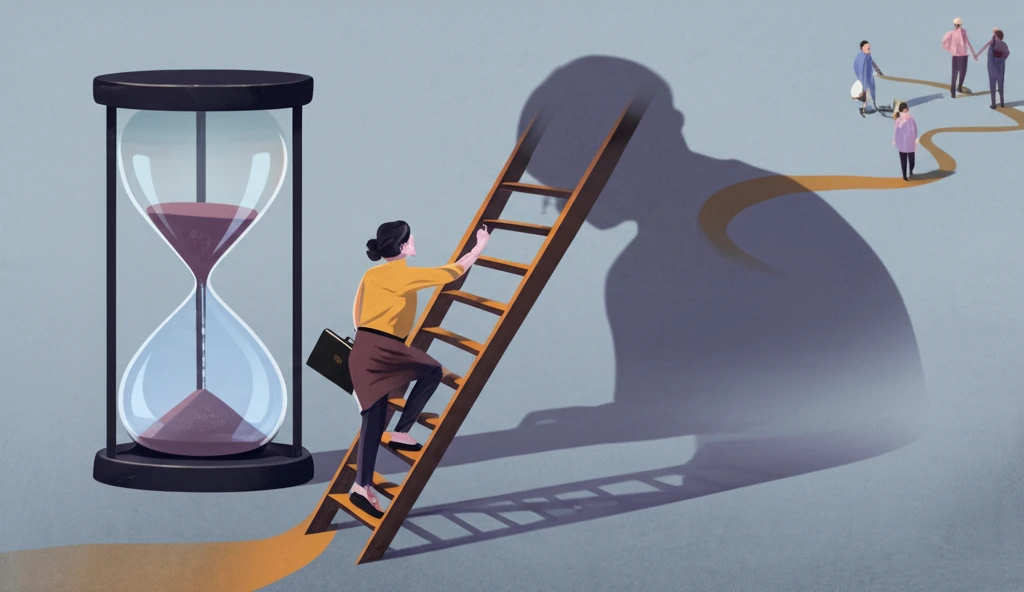
The Silent Squeeze: How Parental Health Impacts Adult Children's Careers, Especially Women
"New research reveals the hidden penalties adult children face when parents experience health shocks, with women disproportionately bearing the burden on their careers. Is it time for a policy change?"
The modern family juggles a complex web of responsibilities. Beyond managing their own lives, many adults find themselves increasingly involved in caring for aging parents. While this support is crucial, new research is uncovering a hidden cost: the silent squeeze on adult children's careers, especially for women.
A groundbreaking study highlights how parental health shocks – unexpected health crises like hospitalizations – can significantly derail the career trajectories of adult children. This isn't just about taking a few days off; the research suggests long-term consequences, particularly affecting women's employment opportunities.
In an era where women are striving for equal footing in the workplace, understanding these subtle yet powerful forces is more critical than ever. This article delves into the findings of this important study, exploring the gender differences in how parental health impacts careers, and what steps can be taken to mitigate these effects.
The Hidden Health Penalty: How Parental Health Shocks Impact Careers

The study, conducted by researchers Jiayi Wen and Haili Huang, examined the long-term impact of parental health shocks on adult children's employment in China. Using data from the China Family Panel Studies (CFPS) from 2012 to 2020, the researchers analyzed how unexpected parental hospitalizations affected the employment status of their adult children.
- The Gender Divide: While women's careers took a hit, the study found no significant impact on the employment of male adult children. This highlights a clear gender disparity in how families respond to parental health crises.
- Long-Term Consequences: The persistent nature of the employment decline is alarming, suggesting that women who leave the workforce to care for parents may face significant challenges in re-entering the job market.
- Economic Implications: The study points to a worrying consequence for developing countries: the phenomenon of "growing old before getting rich," where families struggle to balance economic progress with the increasing demands of elder care.
What Can Be Done? Addressing the Silent Squeeze
The findings of this study underscore the urgent need for societal and policy changes to support families facing the challenges of elder care. This isn't just a personal issue; it's an economic one with far-reaching consequences. By understanding the gendered impact of parental health shocks, we can begin to develop solutions that promote both economic growth and family well-being. Here are some potential avenues:
